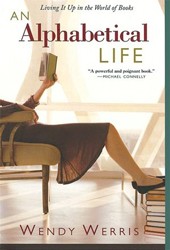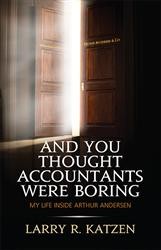A trunk full of family letters and mementos started Joseph Lelyveld on a journey back over a family route that he had determinedly avoided for his entire adult life. The trunk was stored in the Cleveland synagogue where Lelyveld’s father, a prominent Reform rabbi, had served for 30 years, and Lelyveld first saw it when his father was dying in a nearby hospice.
Lelyveld, a Pulitzer-Prize winning author and New York Times correspondent and editor, dismissed the trunk and its suffocating memories with a cursory look. After his father’s death, Lelyveld sent the contents to his home, where he again put them out of his mind.
On his retirement from the Times, Lelyveld set himself an assignment. He would write the story of Ben Lowell, formerly Benjamin Goldstein, a rabbi who had worked under Lelyveld’s father and for two years was the 11-year-old Lelyveld’s first adult friend, the close companion that Lelyveld’s father never was. Then Ben was gone, caught up in the Communist witch hunts of the 1950s.
As Lelyveld searched for Ben in 50-yearold archives, he realized it wasn’t Ben’s story he wanted to unravel, but his own: clues to his sometimes puzzling self and the story of his parents’ complicated marriage. Whatever the public achievements of his father, a courageous and respected rabbi, and his mother, an accomplished Shakespearean scholar, to Lelyveld they were simply his often absent and distracted parents. Once he was able to, he distanced himself from them, both physically and geographically. He moved on, in his words. Only at his father’s funeral and again at his mother’s deathbed does he feel that distance as a loss. And so, reporter that he is, Lelyveld starts reading the letters in the hope that he can connect remembered moments, “memory loops,” he calls them, and understand something of his own story.
The story is laid out against some of the major events of the past century — the case of the Scottsboro boys, young black men accused of rape in Alabama; prewar Communism and postwar anti-Communism in the form of the House Un-American Activities Committee and the Hollywood black list; the rise of American Zionism in the North played off against the anti-Zionism of the South; the civil rights movement of the 1960s. (As an aside, it is interesting to see the South’s attitude toward Zionism and civil rights as reflected in Eli Evans’ The Provincials, also reviewed in this issue.) These were the public issues that shaped the careers and lives of sometime Rabbi Ben Goldstein/Lowell and Rabbi Arthur Lelyveld.
At home other events shaped the lives of the Lelyvelds. Lelyveld’s mother felt trapped as the wife of a young rabbi and mother of two young children in the Midwest. Leaving her husband at his Midwest pulpit and Joseph with a farm family and later with her parents, she followed her ambition to Columbia University, completing, off and on over several years, her Ph.D. But her absences were not only academic; depressed, she suffered nervous breakdowns that required hospitalization, leading to more separations. Lelyveld became a foreign correspondent, and his life after that touched his parents’ only intermittently.
In reading his parents’ correspondence, full of their longings and explanations, and in researching Ben’s background and family, Lelyveld is able to make some connections in the tangled loops of his memory and to see more accurately events that his memory had revised or obliterated. He can now see himself more clearly.
Lelyveld’s brave and unsparing attempt to better know his life story will touch any reader. Not, ultimately, a resolution, it is a belated acknowledgment of what he could not possibly have known, perhaps the situation in which we all live as adults in relation to our parents during our own childhoods. Lelyveld’s memory loops, now untangled and better connected to the events that shaped him, have released him and freed him to express his lost love for his parents. Revealed is a long-repressed yearning for connection that played silently but so vibrantly beneath the surface of his life. Illustrations, notes.
Maron L. Waxman, retired editorial director, special projects, at the American Museum of Natural History, was also an editorial director at HarperCollins and Book-of-the-Month Club.





